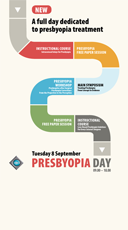Outcomes of cataract surgery with residents as primary surgeons
(results will display both Free Papers & Poster)
Session Details
Session Title: Cataract Surgery Outcomes and Practice Styles
Session Date/Time: Wednesday 09/09/2015 | 08:00-09:30
Paper Time: 08:06
Venue: Room 17
First Author: : M.Daly USA
Co Author(s): : X. Chen A. Payal T. Cakiner-Egilmez A. Chomsky D. Vollman M. Lawrence
Abstract Details
Purpose:
To explore the visual and functional outcomes, unanticipated events, and which unanticipated events actually increase the risk of poor outcomes in patients who have undergone cataract surgery by residents as primary surgeon in the VHA.
Setting:
The United States Veterans Healthcare Administration, Boston, MA.
Methods:
4577 cases were reviewed for frequency of 30 different unanticipated events (UE). We analyzed the BCVA and vision-related quality of life (VRQoL) outcomes days in cases both without (Group A) and with (Group B) unanticipated events, and the association of these events with 16 ocular co-morbidities identified pre-operatively. Fisher's Exact test, Wilcoxon signed rank and rank-sums test and logistic regression for adjusted odds ratios with likelihood test were used for statistical analysis. The follow-up period analyzed was 30 days.
Results:
BCVA and VRQoL improved in both groups (p<0.0001). 96.64% of Group A vs. 88.25% of Group B had BCVA>=20/40 (<0.0001), however B had more preoperative ocular comorbidities (p<0.0001). The following UE were associated with post-op BCVA<20/40: hospital admission<30 days, iris trauma, retained lens with/without return to surgery, zonular dehiscence with/ without vitrectomy, floppy iris syndrome, retinal detachment, anterior capsular tear, posterior tear with/without vitrectomy, conversion to large incision, further surgery, clinically significant or cystoid macular edema, refraction < or >0.75 diopters of target, inflammation at one month, corneal stromal edema (p-values ranging from 0.0449 to < 0.0001).
Conclusions:
To our knowledge, this is the largest study in the literature to date of resident cataract surgery outcomes, and the first to examine quality of life measures. It delineates specific UE which increase the risk of poor visual outcome. Overall, patients with these events still had improved BCVA and VRQoL compared to their preoperative status, but fared worse than the uncomplicated group (BCVA p<0.0001, VRQoL p<0.0001). This could possibly be related to higher occurrence of ocular comorbidities in group B. Longer follow-up may reveal better final visual acuities and VFQ scores in the group with unanticipated events.
Financial Interest:
NONE





